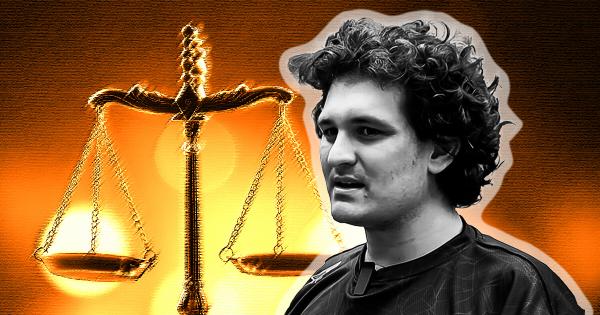In a Sept. 26 filing, Judge Lewis Kaplan, presiding over the criminal case against Sam Bankman-Fried, the former CEO of cryptocurrency exchange FTX, issued rulings on the admissibility of certain types of evidence in his forthcoming criminal trial.
Judge Kaplan began by ruling that government prosecutors are permitted to introduce direct evidence of Bankman-Fried’s alleged crimes.
This includes evidence of actions either authorized by, directed by, or performed by Bankman-Fried. Specific evidence concerns false statements to an unnamed bank, illegal campaign financing, bribery of a Chinese official, the creation and manipulation of FTX’s FTT token, and prioritization of payments to certain creditors after FTX’s collapse.
Notably, the judge declined to rule immediately on the admissibility of evidence related to auto-delete policies that erased FTX communications. Judge Kaplan said that this may be admissible in order to show that Bankman-Fried knew of and intended his alleged crimes. However, he noted that Bankman-Fried intends to introduce evidence that the auto-delete policies were introduced in good faith and with counsel involvement.
The judge noted that any risk that a jury could convict Bankman-Fried solely on particular pieces of evidence can be “foreclosed by an appropriate instruction.”
Judge denies certain government requests
Judge Kaplan explicitly denied a request through which prosecutors aimed to determine that entire categories of out-of-court statements and excerpted out-of-court statements are permissible. This area largely includes statements from Bankman-Fried’s former colleagues, including but not limited to Caroline Ellison. The judge said that each piece of evidence in this area must be admitted individually.
Prosecutors additionally asked for the judge to determine that certain documents are self-authenticating and in need of reduced cross-examination from record custodians. Judge Kaplan once again denied this government motion.
Prosecutors also asked for Bankman-Fried to be precluded from introducing certain evidence deemed “irrelevant or unfairly prejudicial.” Judge Kaplan largely granted or did not immediately issue a ruling on those requests. However, he did reject one request in this area: contrary to the government’s wishes, Bankman-Fried will be permitted to cross-examine witnesses about the terms of service on FTX’s website.
On a similar note, Bankman-Fried will be allowed to cross-examine witnesses about documents and topics protected by the attorney-client privilege.
Finally, Judge Kaplan denied a motion to prevent Bankman-Fried from asking witnesses about their own recreational drug use — a matter seemingly related to reports in 2022 that suggested such activity among FTX insiders. Though Bankman-Fried will be allowed to raise this topic, he will need to provide notice before doing so in front of the jury.
Judge largely denies SBF’s requests
Judge Kaplan next ruled on motions from Bankman-Fried and his legal team. The defendant largely aimed to prevent prosecutors from introducing certain evidence.
Critically, Bankman-Fried aimed to prevent the government from introducing information related to the bankruptcy of FTX and Alameda Research. Bankman-Fried also attempted to block the introduction of evidence related to his own resignation from FTX.
Judge Kaplan denied those requests. He said that precluding this evidence would “go too far” and noted that the undisputed facts surrounding the bankruptcy and resignation are closely linked with Bankman-Fried’s alleged crimes. Once again, Kaplan said that the risk that a jury could convict Bankman-Fried solely on this evidence can be mitigated.
Bankman-Fried additionally tried to prevent the government from introducing statements and advertising materials related to FTX.US, an American company that largely operated separately from FTX. The judge denied this request, dismissing Bankman-Fried’s concern that the evidence that will be presented by the government could lead a reasonable individual to believe that the FTX.US material pertains to FTX itself.
Bankman-Fried’s trial is set for Oct. 3 and will concern charges related to fraud and money laundering. A later trial will concern campaign financing and other charges.
The post Court rules on admissibility of evidence in Sam Bankman-Fried’s upcoming criminal trial appeared first on CryptoSlate.







